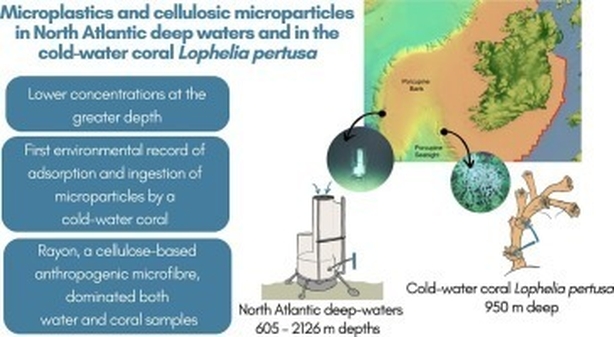Researchers say the discovery of microplastics in deep waters and cold-water corals of the North Atlantic Ocean highlights the pollution of the ocean's most remote and ecologically vital regions.
An analysis of the shape and composition of the microparticles suggests they may originate from clothes, indicating that wastewater runoff from washing machines could be polluting deep-sea corals living in previously thought to be "pristine waters".
The University College Cork study, funded by the Marine Research Institute, focused on the Porcupine Bank Canyon and north-eastern Porcupine Seabight.
The team analysed samples from depths of 605m to 2,126m from these marine conservation sites.

The main finding is that cold-water corals, particularly the framework-forming Lophelia pertusa, may not only be exposed to but are also ingesting microplastics and cellulosic microparticles.
The reserachers say this underscores the vulnerability of the corals, which create essential habitats for various marine species, to the ever-growing threat of marine pollution.
The research also identified rayon microfibres as dominant in water and coral samples, suggesting potential pollution sources linked to land and washing machines' wastewater.
This points to a complex interaction between land-based activities and marine pollution, emphasising the need for integrated environmental management strategies, the team said.
The findings come as international efforts intensify at the United Nations for a Global Plastics Treaty.
"Understanding the true fate of microplastics and other synthetic particles is essential for developing effective policies and mitigating the impact of plastic pollution," said Dr Alicia Mateos-Cárdenas, who led the research team.

